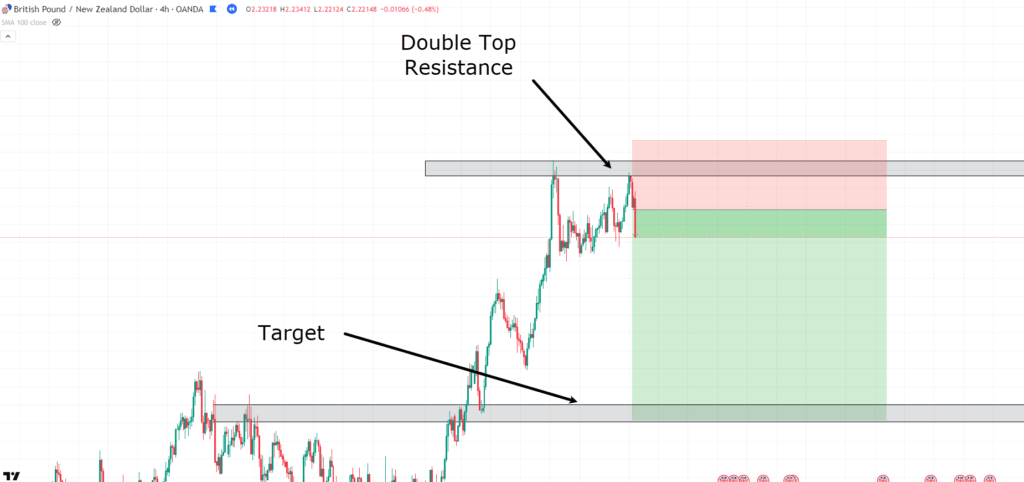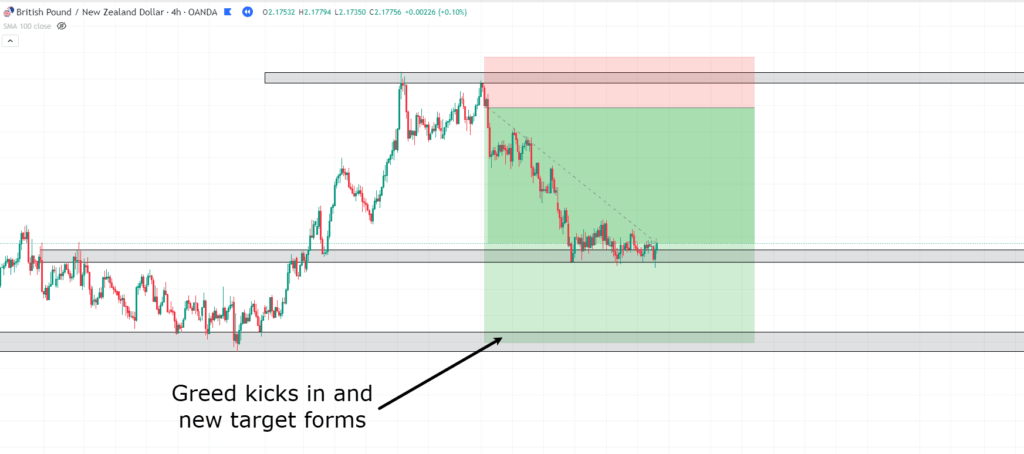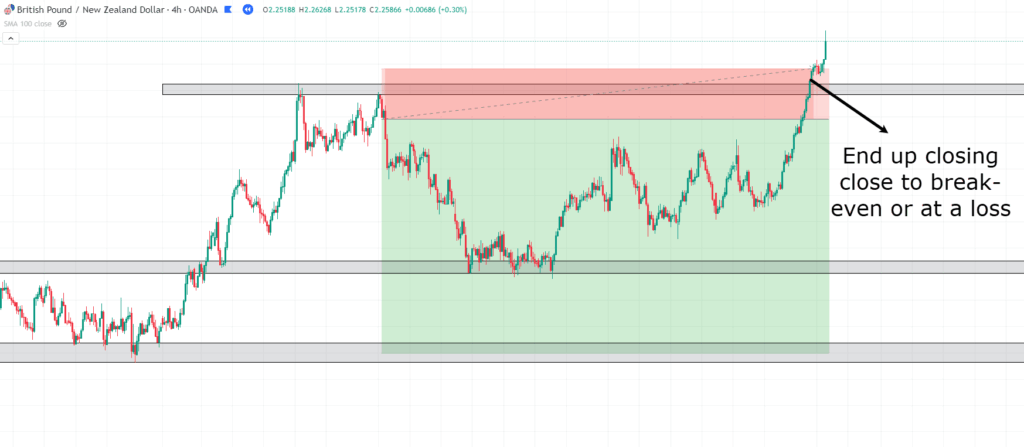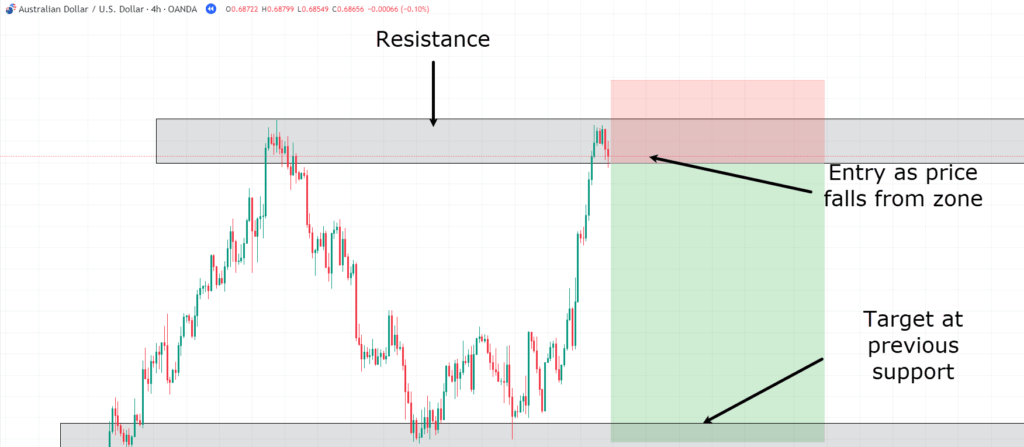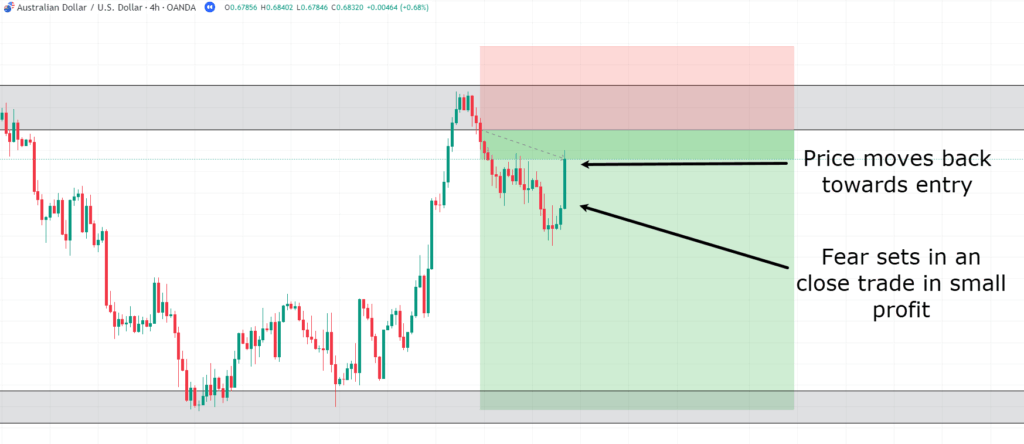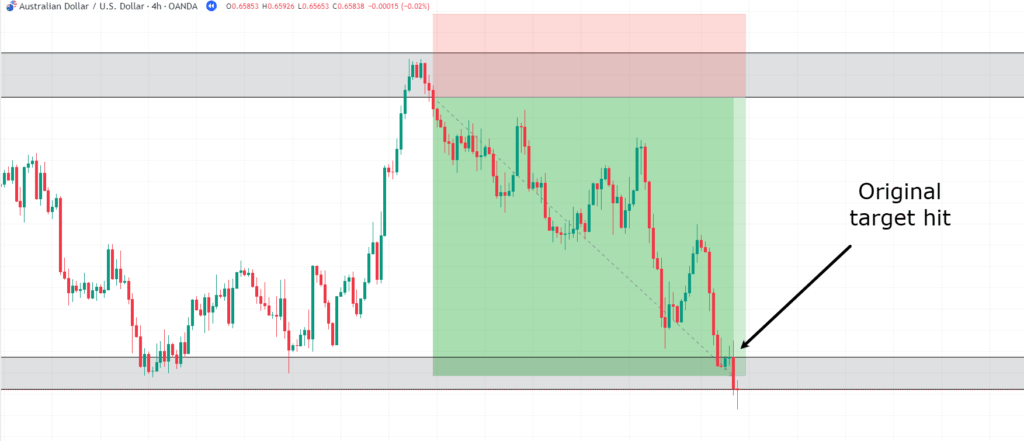Ever felt like your buying and selling selections make sense in principle, however within the second, one thing simply… takes over?
Possibly you’ve received a transparent setup, a stable plan, and an outlined cease loss.
However as quickly because the commerce is stay, all the pieces adjustments.
Your coronary heart races, your thoughts spins, and earlier than you recognize it, you’re slicing income early or letting losses run.
Concern and greed, sound acquainted?
Most merchants deal with discovering the proper setup or entry method, however they overlook the invisible forces that derail execution…
Concern of loss.
Concern of lacking out.
Greed for extra.
These aren’t simply surface-level emotions. They’re hardwired organic responses.
And should you don’t be taught to work with them, they’ll quietly sabotage your edge.
That’s precisely what this text is right here to unpack.
Right here’s what you’ll discover:
- How your fight-or-flight system will get triggered even while you’re not in actual hazard
- Why actual cash adjustments the way in which your mind processes selections
- The distinction between being emotional and being irrational
- Sensible instruments to scale back emotional interference
- Actual chart-based examples exhibiting how worry and greed have an effect on merchants within the second
Whether or not you’re combating hesitation, impulsive exits, or revenge trades, understanding the emotional aspect of buying and selling might be the lacking hyperlink to better consistency.
So let’s dive in.
Why Concern and Greed Are So Highly effective
Let’s get one thing straight: worry and greed in buying and selling aren’t simply “emotions.”
And until you perceive what’s taking place behind the scenes, these responses can quietly take over your selections with out you even realizing it.
Struggle-or-Flight in Buying and selling
Everytime you enter a commerce, you’re taking a danger.
You’re placing one thing invaluable at stake… your cash!
Though you’re bodily protected, your mind doesn’t see it that approach….
Take into consideration what life was like 1000’s of years in the past.
Danger meant going through a predator or life-or-death survival conditions.
In entrance of your charts, your mind treats monetary danger the identical approach it handled bodily hazard again then.
When a commerce strikes towards you, your physique begins firing off stress responses:
Your coronary heart fee will increase
Respiratory turns into extra shallow
And your focus narrows onto the rapid “menace”
Your mind is shouting: Get out! Defend your self!
That is the fight-or-flight response as worry and greed settle in, and it kicks in whether or not you’re being chased by a lion or watching your buying and selling account dip into drawdown.
As soon as this historical defence system fires up, there’s a danger it may override your logical considering.
Your prefrontal cortex, the a part of your mind accountable for rational decision-making, takes a backseat to emotional survival mode.
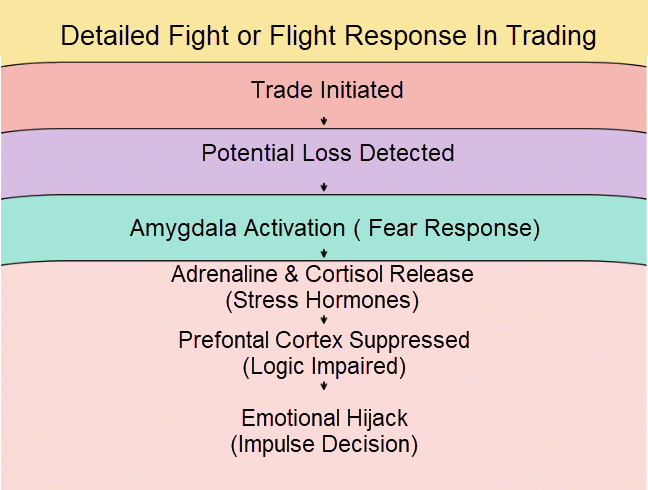
Okay, so how does this relate on to buying and selling?
In buying and selling, this could result in:
Closing good trades too early out of worry
Freezing and refusing to behave out of worry
Over-leveraging after a win resulting from greed
Doubling down on unhealthy trades
You’re not making rational selections anymore. You’re reacting to perceived “hazard.”
Cash Modifications the Mind
It’s not simply historical instincts at work, both.
Fashionable analysis reveals that the presence of actual cash bodily alters how your mind processes selections.
When cash’s on the road, emotional facilities just like the amygdala and striatum turn out to be extra energetic, whereas the logical, reasoning a part of the mind, the prefrontal cortex, turns into much less engaged.
Your mind actually begins prioritizing emotion over logic, making it simpler to chase impulsive wins or panic throughout small setbacks.
Neuroscientist Antonio Damasio’s Somatic Marker Speculation helps this too: emotional reactions, formed by previous experiences, closely information decision-making underneath uncertainty.
Briefly, your previous wins and losses can subtly affect your subsequent buying and selling transfer, even should you suppose you’re being “rational.”
Put cash on the desk, and your mind begins behaving extra prefer it’s in a on line casino than in a calculated decision-making course of.
With out Acutely aware Management, Feelings Override Logic
Right here’s the kicker: none of this occurs slowly.
You don’t get a well mannered warning out of your mind saying,
“Hey, your logical considering is about to close down, simply so you recognize.”
It’s quick. It’s computerized.
In case you don’t consciously intervene, your feelings will quietly take the wheel.
A easy instance?
Think about you’re ravenous and stroll right into a grocery retailer with a easy procuring record, solely to go away with a cartful of unplanned treats.
Starvation overrode your logical plan.
Buying and selling is analogous – worry and greed can really feel so pressing that they make you abandon your well-planned technique.
They aren’t “unhealthy feelings,” however historical survival instruments reacting to trendy monetary stress.
In case you can’t acknowledge and construct programs to handle your worry and greed, although, they may drive your buying and selling selections straight into the bottom.
Concern and Greed: Chart Examples
To raised illustrate this, let’s check out some actual chart examples so that you get an thought of how greed and worry can unfold in a buying and selling state of affairs.
Grasping Sarah
Meet Sarah.
Sarah’s been on a scorching streak, 5 trades, 5 wins.
Feeling untouchable, she decides to take her subsequent commerce with double the danger.
The setup?
The identical as her earlier 5, so what might presumably go improper?
She’s targeted on rising the account quick as a result of greed tells her this one’s going to be huge.
The commerce is entered at a double prime resistance zone, focusing on a robust help beneath…
Sarah’s Entry Setup:
All the pieces appears clear on the floor, the goal is cheap, and the entry is smart.
Nonetheless, Sarah’s choice to extend danger and bypass her guidelines is already setting the stage…
Sarah’s Goal Hit:
As the value strikes in her favor, Sarah’s authentic goal will get changed with a extra aggressive one.
She needs extra.
She believes this commerce is de facto the one that may push her account to the following degree.
A brand new goal is positioned on the subsequent logical help degree.
Are you able to guess what occurs subsequent?…
Worth Reversal:
In fact, the value reverses.
Sarah hesitates her worry and greed kicks in.
She holds too lengthy, watching income disappear.
What began as a robust commerce with nice income ended up closing close to breakeven, and even at a loss, all as a result of she ignored the plan in pursuit of extra.
So, be sincere for a second.
Have you ever ever felt like Sarah?
That sense that your current wins meant you have been “due” for one thing huge or that you just have been untouchable?
Greed hardly ever broadcasts itself upfront, nevertheless it likes to take management the second you let go of your construction.
Subsequent, there’s fearful Jack.
Jack Gripped by Concern
Jack’s commerce setup is stable: a clear double prime varieties at resistance…
The Proper Entry:
He follows his guidelines, enters the brief, and units a logical goal on the subsequent help zone.
A textbook double prime varieties.
His evaluation is sound, and his plan is obvious.
All the pieces goes in line with plan…
Concern Creeps In:
Worth initially strikes in Jack’s favor, validating the setup.
However then a robust bullish candle varieties, pulling the value sharply again towards his entry.
Jack panics.
“What if it reverses?”
Somewhat than belief the setup, he exits early, locking in a small revenue…
The Missed Transfer:
Oh no!
Jack watches on in disbelief.
After the short-term pullback, the value resumes its drop, persevering with steadily towards Jack’s authentic goal.
Had he stayed in, it might’ve been an amazing commerce.
However worry of shedding what he’d already gained received in the way in which.
Nicely, I’ve been there earlier than – how about you?
Exiting a commerce not as a result of your setup failed, however as a result of your feelings whispered,
“Take the win now, simply in case…”
That is what worry does.
It doesn’t shout, it nudges.
However these nudges can price you greater than you suppose, particularly while you’ve gone by way of a current drawdown or a string of unfortunate trades.
Okay, so you may see how this would possibly play out in your buying and selling, however how are you going to actively handle worry and greed to stop them from ruining your buying and selling?
How you can Handle Concern and Greed
Managing worry and greed isn’t about changing into impassive.
It’s about recognizing these feelings early and having a system in place that protects you after they present up.
In case you wait till you’re already emotional to determine what to do, it’s often too late.
You have to construct emotional resilience earlier than you’re within the warmth of the second.
Right here’s methods to begin.
Mindset Shift: Play the Lengthy Sport
Step one to managing feelings is shifting the way you see buying and selling.
Most individuals naturally decide success by the result of the following commerce.
Win? Really feel good. Lose? Really feel horrible.
However actual consistency doesn’t come from “profitable the following commerce,” it comes from executing your course of throughout lots of of trades, realizing that your edge performs out over time.
It’s a must to begin considering in chances, not outcomes.
You’re not on the lookout for certainty.
You’re enjoying a sport the place uncertainty is regular and the place the sting solely reveals itself over massive samples.
While you begin considering like this:
One loss all of a sudden doesn’t rattle you, however on the similar time, one win doesn’t make you reckless
This results in your emotional reactions from worry and greed shrinking as a result of your focus is greater than “proper now.”
You cease being obsessive about whether or not this commerce wins and begin being obsessive about whether or not you executed your plan appropriately.
It is a excellent spot to be.
Deal with Course of, Not Final result
In case you make selections based mostly on outcomes, your feelings will at all times management you.
As an alternative, shift your total success metric to the method.
Ask your self after each commerce:
Did I observe my guidelines?
Did I take the setup that my plan mentioned to take?
Did I dimension the commerce correctly?
If the reply is sure, it’s a profitable commerce, even when it’s a loss.
Keep in mind, you may’t at all times management what the market does.
However you may management what you do.
And that’s the place your actual energy is.
Sensible Instruments to Handle Feelings
Mindset is vital, however instruments may also help you again it up when the stress is on.
#1 is:
Danger Administration (Cease Losses, Correct Sizing)
Setting clear danger parameters earlier than coming into a commerce protects you from panic selections later.
This implies at all times use cease losses based mostly on construction, not feelings.
It additionally means you might be risking a small, constant proportion of your account (like 1% or much less per commerce).
This shouldn’t wildly change from commerce to commerce.
Final however not least, go into each commerce accepting the total danger earlier than you enter; this may assure there are not any surprises.
If you recognize precisely what you’re prepared to lose earlier than you click on the button, worry shrinks dramatically.
The subsequent sensible instrument is a Buying and selling Plan and Journaling
A written buying and selling plan retains you grounded.
It tells you precisely when to enter, exit, and alter danger, eradicating decision-making from the warmth of the second.
However it’s not simply technical.
Journaling your emotional states throughout and after trades is equally necessary.
While you begin monitoring, the way you felt earlier than, throughout, and after trades, what ideas or impulses you observed, and what feelings triggered good or unhealthy selections…
…you start to see emotional patterns, and from there, patterns might be managed when you’re conscious of them.
Lastly, checklists and cool-off durations are important
Earlier than you enter a commerce, run by way of a easy guidelines:
Does this commerce meet my plan standards?
Is my danger dimension appropriate?
Am I buying and selling from logic or emotion?
After an enormous win or a tricky loss streak, construct in obligatory cool-off durations:
Step away for the remainder of the day or just a few hours…
Enable your self to reassess solely after feelings cool…
And naturally, by no means revenge commerce or rush again into the market with out aware evaluation.
Generally the most effective commerce you’ll ever make… is taking no commerce in any respect!

Managing worry and greed isn’t about being good.
It’s about establishing programs that hold you constant when feelings inevitably present up.
As a result of the market isn’t your largest enemy…
…your unmanaged reactions are.
You Can’t Eradicate Concern and Greed — And That’s Okay
One of many largest myths in buying and selling is that the most effective merchants are these chilly, mechanical robots who really feel nothing as they danger 1000’s of {dollars}.
However it’s not true.
Feelings are a part of being human.
You’re alleged to really feel one thing when cash is on the road.
In case you didn’t, you wouldn’t be totally engaged with the method.
The true secret of profitable merchants is that their programs, their plans, danger administration, and self-discipline act as a buffer between these feelings and their actions.
Choices Should Be Backed by Logic
You may and can really feel emotional at instances in buying and selling.
When a commerce goes towards you and worry rises…
When an enormous win tempts you to double your danger…
When boredom makes you wish to “simply take one thing” out of impatience…
That’s when it’s worthwhile to cease and ask:
“Am I making this choice based mostly on my system… or based mostly on how I really feel proper now?”
If it’s based mostly on emotion, pause.
Reset.
If it’s based mostly in your pre-planned logic, you execute.
Over time, it would turn out to be second nature.
You received’t have to “struggle” feelings; you’ll merely acknowledge them with out obeying them.
Conclusion
By now, it ought to be clear that buying and selling success isn’t nearly discovering the proper setup or mastering a brand new technique; it’s about managing the emotional swings that include placing actual cash on the road.
Concern and greed aren’t weaknesses, they’re a part of being human.
However when left unchecked, they’ll push even essentially the most ready dealer off beam.
You would possibly exit too early, leap in too late, transfer a cease, overleverage, or skip a commerce solely… not as a result of your system mentioned so, however as a result of your feelings did.
As you’ve seen by way of Sarah and Jack’s tales, the distinction typically isn’t within the setup, it’s within the response.
The dealer who can handle their emotional state will typically outperform the one who’s always reacting to it.
Buying and selling with readability doesn’t imply you received’t really feel worry or pleasure.
It means you’ll act in alignment together with your plan anyway.
Now I’d love to listen to from you:
Have you ever ever had a “Jack second” the place worry made you shut a commerce too early?
Or possibly a “Sarah second” the place you grew to become overconfident due to earlier success
Drop your story within the feedback, let’s be taught from one another.


